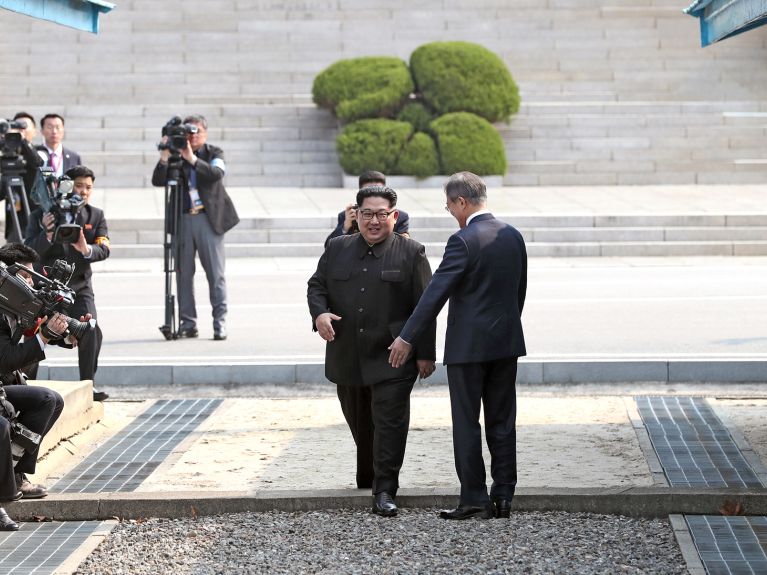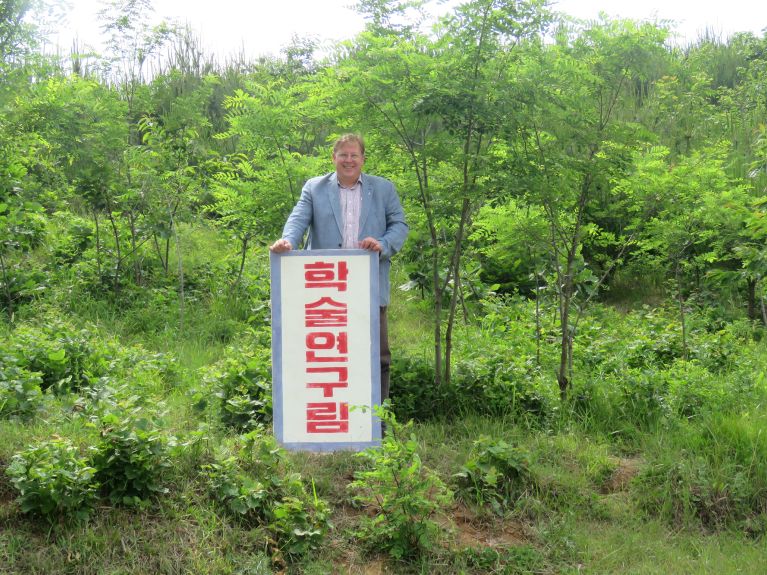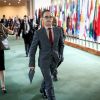A historic opportunity
What North Korea really wants and how Germany might contribute to positive change. The Korea expert Bernhard Seliger explains.

Bernhard Seliger heads the branch of the Hanns Seidel Foundation in Seoul. He wants to help promote the rapprochement between North and South Korea and the international community. Four questions for the Korea expert.

Mr Seliger, the meeting between Donald Trump and Kim Jong-un in Singapore was celebrated as a ‘historic turning point’. How did this sudden change come about?
When President Moon Jae-In came to office in South Korea in May 2017, there was already hope for a renewal of South Korea’s Sunshine Policy. And South Korea did in fact work on creating detente on the Korean peninsula. At the same time pressure grew on North Korea. The pressure that the USA has been exerting, especially through sanctions, in which China also participated in the end, has certainly contributed to the change. On the other hand, the North Korean leader Kim Jong-Un had already achieved the strategic goals of his policies to simultaneously build up economic and military strength. However, it is uncertain whether he really will give up the nuclear weapons and missiles, because both sides have only made announcements without any actions so far.
The North Koreans are very interested in putting the politics of confrontation behind them.
What can German organizations like the Hanns Seidel Foundation do to support detente?
I think the North Koreans are very interested in putting the politics of confrontation behind them. This means that international steps towards mutual understanding are also needed to make this succeed. Especially Germany with its network of political foundations, widespread economic interests in East Asia, cultural and humanitarian intermediary organizations, and very good relations with most countries in the region, is well equipped to support this process. For instance, through study trips and scholarships for North Koreans in a number of specific fields.
Some observers say that Kim Jong-un wants to emulate the Chinese reformer Deng Xiaoping. Others reckon that he is also aware of the fate of the GDR. Which scenario do you think is most appicable?
Of course Kim Jong-Un would much prefer an orderly transition to a strong growing economy while retaining control of the state and the population, similar to the Chinese approach. An important precondition would be the comprehensive and verifiable fulfilment of denuclearization. Then there is the question of how far South Korea, with its dynamic economy and society, can become a magnet for North Korea. We have had a similar experience to this in Germany. The outcome is open, but the summit between North and South Korea, as well as North Korea and the USA, was a first important step in the right direction.
Interview: Martin Orth
